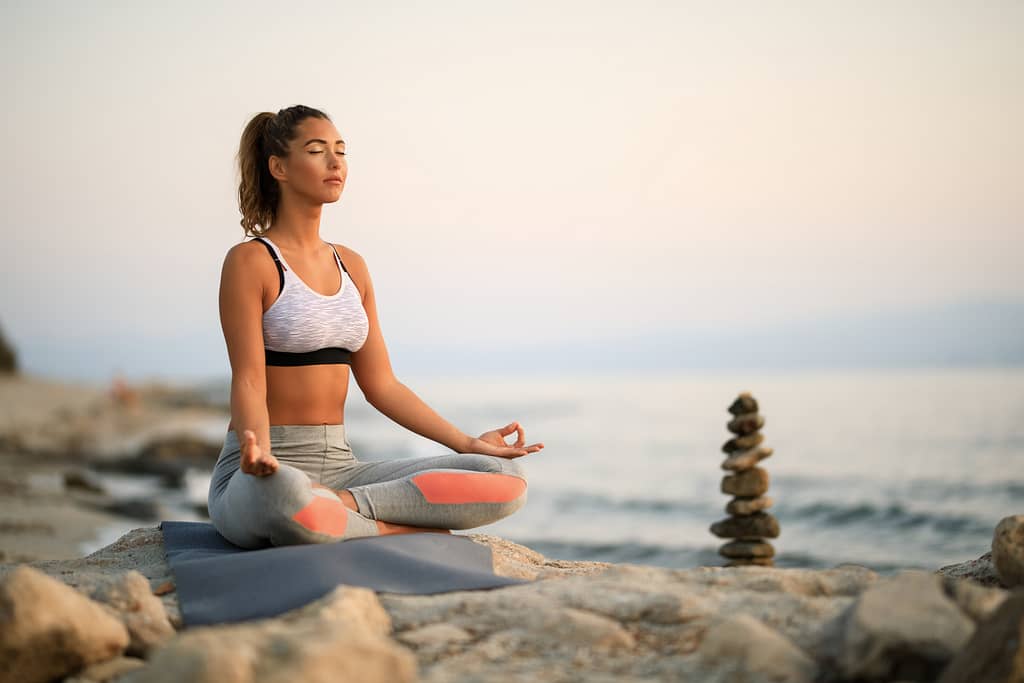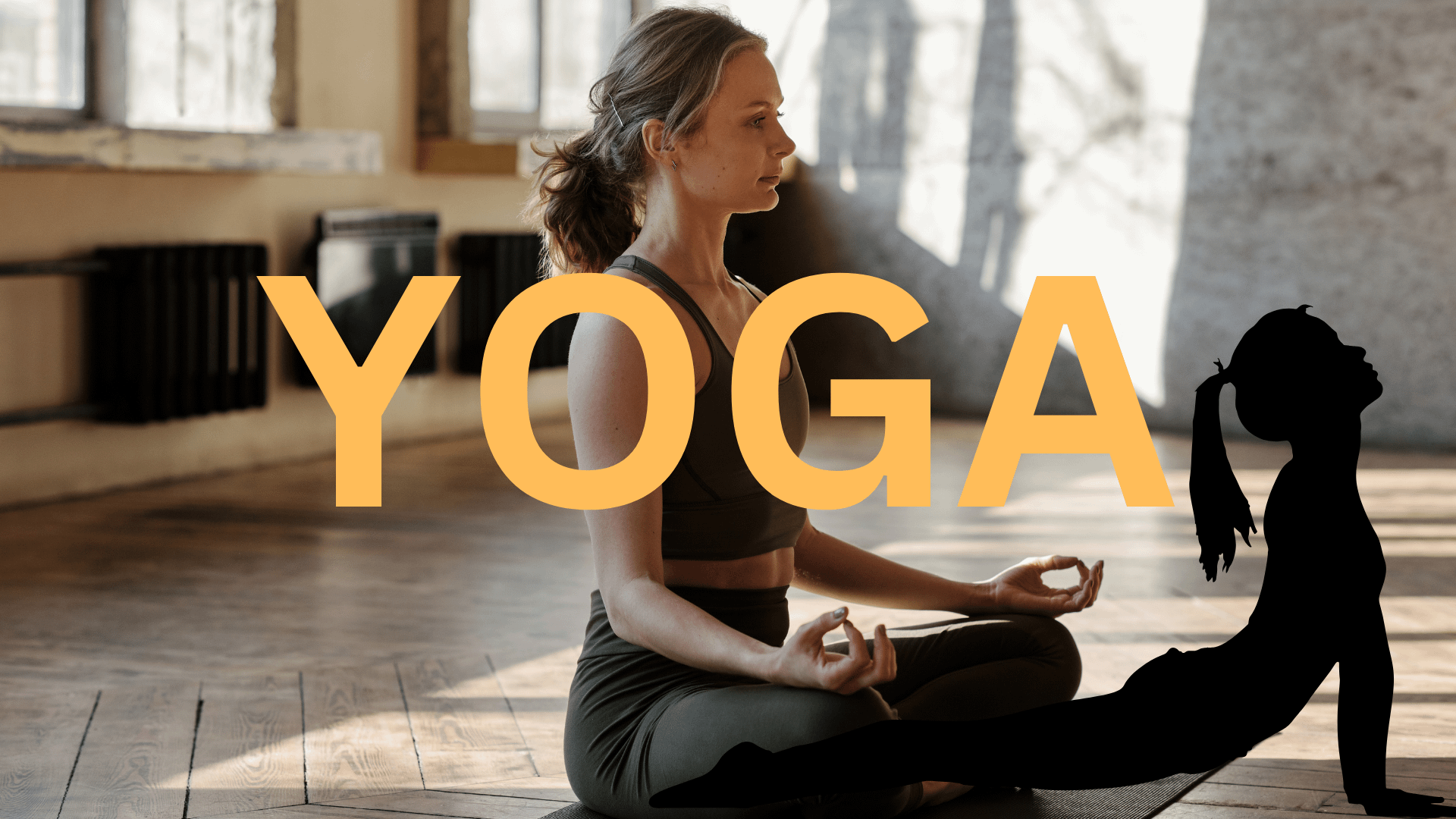
Introduction:
Yoga is an ancient practice that originated in India over 5,000 years ago. It is a holistic approach to health and well-being that integrates physical postures, breathing exercises, and meditation. The word “yoga” itself means “union,” symbolizing the connection between mind, body, and spirit.
Physical Benefits:
Yoga offers numerous physical benefits. It improves flexibility, strength, and balance through a variety of poses and movements. Regular practice can enhance muscle tone, increase energy levels, and improve cardiovascular health. Yoga also supports better posture and alignment, reducing the risk of injury and chronic pain.
Mental and Emotional Benefits:
One of the most profound aspects of yoga is its impact on mental and emotional health. Yoga promotes relaxation and reduces stress through focused breathing and meditative practices. It has been shown to lower levels of cortisol, the stress hormone, and increase the production of endorphins, the body’s natural mood lifters. Practicing yoga can also improve concentration, enhance mental clarity, and foster a sense of inner peace and calm.
Types of Yoga:
There are various styles of yoga to suit different needs and preferences. Hatha yoga is ideal for beginners, offering gentle and basic postures. Vinyasa yoga is more dynamic, with flowing sequences that link breath with movement. For those seeking a vigorous workout, Ashtanga or Power yoga may be the best choice. Yin and Restorative yoga are slower-paced, focusing on deep stretching and relaxation.
Mindfulness and Spiritual Growth:
Beyond the physical and mental benefits, yoga is a spiritual practice that encourages mindfulness and self-awareness. Through consistent practice, individuals can develop a deeper connection with themselves and the world around them. Yoga encourages living in the present moment, cultivating gratitude, and fostering a compassionate and non-judgmental attitude.
Accessibility and Inclusivity:
Yoga is accessible to people of all ages, fitness levels, and backgrounds. It can be adapted to meet individual needs, making it an inclusive practice. Whether practiced in a group setting or at home, yoga offers a supportive environment for personal growth and self-discovery.
Conclusion:
Yoga is a comprehensive practice that supports physical health, mental clarity, and spiritual growth. By integrating yoga into daily life, individuals can experience enhanced well-being, reduced stress, and a deeper sense of inner peace. As a timeless practice, yoga continues to inspire and transform lives around the world.
Common Yoga Poses
- Downward Dog (Adho Mukha Svanasana): Strengthens and stretches the entire body.
- Warrior I (Virabhadrasana I): Builds strength in the legs and core.
- Tree Pose (Vrksasana): Enhances balance and stability.
- Child’s Pose (Balasana): Provides gentle stretching and relaxation.
- Bridge Pose (Setu Bandhasana): Strengthens the back and glutes while stretching the chest and spine.
Yoga and Lifestyle
Incorporating yoga into daily life can lead to:
- Healthier Habits: Encourages mindful eating and overall wellness.
- Better Stress Management: Provides tools for coping with daily stressors.
- Enhanced Relationships: Promotes emotional balance and positive interactions with others.
- Increased Life Satisfaction: Contributes to a more balanced and fulfilling lifestyle.
The Transformative Power of Yoga
Yoga is not just a practice; it’s a transformative journey that enhances various aspects of life. It promotes physical health, mental clarity, emotional resilience, and spiritual growth. By embracing yoga, individuals embark on a path of continuous improvement, discovering a deeper connection with themselves and the world around them. As practitioners integrate yoga into their lives, they often experience profound changes, leading to greater overall well-being and personal fulfillment.

Integrating Yoga into Daily Routine
Morning Practices: Starting your day with yoga can set a positive tone for the day. Gentle stretches and breathing exercises in the morning help awaken the body, increase energy levels, and prepare the mind for the day ahead.
Workplace Yoga: Incorporating short yoga breaks during the workday can improve productivity and reduce stress. Simple stretches and breathing exercises can be performed at your desk or in a quiet space to relieve tension and enhance focus.
Evening Wind-Down: Practicing yoga in the evening helps transition from the day’s activities to a restful night’s sleep. Gentle poses and relaxation techniques can calm the mind, release physical tension, and prepare the body for sleep.
Yoga and Nutrition
Mindful Eating: Yoga encourages mindful eating, which involves paying full attention to the eating experience. This practice promotes healthier food choices and better digestion by fostering awareness of hunger cues and savoring each bite.
Hydration: Staying hydrated is essential for optimal yoga practice. Drinking enough water throughout the day helps maintain flexibility and supports overall health, enhancing the benefits of yoga.
Balanced Diet: A diet that complements yoga practice includes a balance of whole foods, such as fruits, vegetables, lean proteins, and whole grains. Proper nutrition supports physical stamina, aids recovery, and enhances mental clarity.
Yoga for Specific Populations
Yoga for Athletes: Athletes benefit from yoga by improving flexibility, preventing injuries, and enhancing performance. Yoga helps in muscle recovery, increases range of motion, and promotes mental focus.
Yoga for Seniors: Yoga provides numerous benefits for seniors, including improved balance, strength, and flexibility. Gentle and restorative poses can help maintain mobility, reduce the risk of falls, and promote overall well-being.
Yoga for Pregnant Women: Prenatal yoga supports the physical and emotional changes during pregnancy. It helps alleviate common discomforts, improves circulation, and prepares the body for childbirth. Always consult with a healthcare provider before starting a prenatal yoga practice.
Yoga and Mental Health
Managing Anxiety: Yoga techniques, such as deep breathing and meditation, are effective tools for managing anxiety. Regular practice helps regulate the nervous system, promotes relaxation, and provides coping mechanisms for stress.
Depression Support: Yoga can be a supportive practice for individuals dealing with depression. It helps in boosting mood, enhancing self-awareness, and fostering a sense of community and connection.
Enhancing Cognitive Function: Yoga practices, including meditation and breathwork, have been shown to improve cognitive function. They enhance memory, focus, and mental agility, contributing to overall cognitive health.
Advanced Yoga Practices
Advanced Poses: For experienced practitioners, advanced poses offer challenges that enhance strength, flexibility, and balance. These poses require a deep understanding of body mechanics and a high level of discipline and concentration.
Meditative Practices: Advanced yoga incorporates deeper meditative practices, including long periods of meditation and advanced breath control techniques (pranayama). These practices help deepen spiritual insights and foster profound inner peace.
Yoga Philosophy: Studying the philosophical aspects of yoga, such as the Yoga Sutras of Patanjali, provides a deeper understanding of the practice’s roots. This exploration enriches the practice by integrating its ethical and spiritual principles into daily life.
Yoga and Technology
Online Classes: With the rise of digital platforms, online yoga classes offer convenience and accessibility. Practitioners can join classes from home, explore various styles, and access a range of instructors and resources.
Yoga Apps: Yoga apps provide guided practices, pose libraries, and personalized workout plans. These tools can support and enhance the home practice experience, making yoga more accessible and customizable.
Wearable Technology: Wearable devices, such as fitness trackers and heart rate monitors, can provide insights into your yoga practice. They help track progress, monitor physical responses, and set personal goals.

